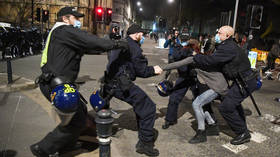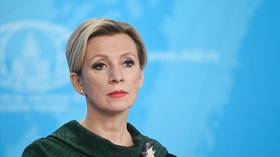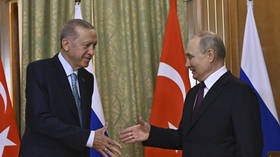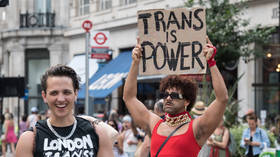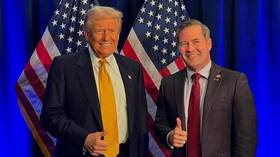Social media is not as big a threat to humanity as the self-selected experts who think they have a right to police it

A new report on the urgent need to study how collective behaviour is being influenced by social media is a thinly disguised elitist demand for mass deference to self-selected experts. This represents a major threat to democracy.
There is no doubt that social media is a powerful instrument for mobilising people. It is also clear that it has had an enormous impact on culture and politics. But it is not its technological imperative that allows the technology to play such a prominent role. The technology has no volition or free will. It is a tool. What drives its use is human behaviour, particularly the values and sense of purpose and meaning informing it.
This is why the publication of a new paper titled ‘Stewardship of global collective behavior’ by 17 researchers in the prestigious science journal PNAS earlier this month should be of great interest to the public.
It is, but not for the reason the authors would like us to imagine.
The paper is a call to action to understand how the collective behavioural effects of new technology represent a danger to the future of democracy and scientific progress. It argues that the study of social media and the internet’s large-scale behavioural impact on society should now be treated as a “crisis discipline.”
This sounds very scary and is very, very serious.
Also on rt.com TikTok temporarily banned in Pakistan again over accusations it promotes obscenityA crisis discipline is a field in which scientists across different fields work quickly to address an urgent societal problem. The report suggests the study of technology-influenced collective behaviour should be treated with the same urgency “as medicine, conservation, and climate science have, with a focus on providing actionable insight to policymakers and regulators for the stewardship of social systems.”
You don’t have to read one word of this paper to detect drivel. This paper might appear to be academic objectivity, but it is far from altruism.
The title gives it all away. The demand for stewardship is a demand for stewards, for those who can act as surrogates for us. Unlike you and me (who are overly influenced by misinformation on social media), these self-selected experts are the only ones who can take responsibility for overseeing and protecting something considered to be worthy of preservation.
They cite the ‘infodemic’ of misinformation that has allegedly hindered the widespread acceptance of masks and vaccines, for example. The authors warn that if left misunderstood and unchecked, we could see unintended consequences of new technology contributing to phenomena such as “election tampering, disease, violent extremism, famine, racism, and war.”
The stress upon complexity and unintended consequences is the oldest elitist claim to authority in history. In ancient Greece, Plato raised the alarm about the perils posed by the invention of writing and reading. The invention of the printing press was perceived as a threat to European culture, social order, and morality. In the early days of TV, which heralded the start of the ascendancy of electronic media, it was argued it represented a corrosive influence on public life.
Also on rt.com Cyberhack dispute: Russian diplomats say Moscow not behind attacks on US targets, but is itself constantly bombarded by AmericansThe role of social media is no different. That this is a powerful instrument for mobilising society is not in doubt. But social media does not determine anything in and of itself. Its use (and abuse) expresses aspirations and needs that pre-exist or exist independently of the technology. This technology, like other media, is nothing but a resource that is being used by social and political movements that are seeking a communication infrastructure to promote their cause.
Carl Bergstrom, one of the lead authors of the paper, argues that his concern is the way internet technologies, including algorithmically driven search and click-based advertising, “have changed the way that people get information and form opinions about the world… in a manner that makes people particularly vulnerable to the spread of misinformation and disinformation.”
He is quite scathing about people who don’t accept the inherent danger of misinformation and how it influences behaviour. “Yeah, sure, there’s a lot of misinformation online, but it doesn’t change anyone’s behaviour,” he quips, but then glibly adds, “but then all of a sudden you got a guy in a loincloth with buffalo horns running around the Capitol building.” He then asks,“How many more elections do you think we have before things get substantially worse?”
So, it is not all the unintended consequences these powerful technologies have unleashed that worry these authors. It’s the outcomes they disagree with. Like the other ‘crisis disciplines’ of ecology or climate change, any scepticism is regarded as denialism, a behaviour that threatens or questions their unassailable benevolent stewardship.
These authors might be experts in their fields. Many might be scientists. But the spirit of this report is the abrogation of science and its open-ended methodology.
All technologies throughout history have contained unexpected outcomes. They have shaped and changed society in ways few could have immediately grasp. The invention of fire, for example, was one of the most significant inventions in human history. It provided heat, light, protection from predators, and allowed humanity to cook, which enabled our species to survive and thrive in the most hostile environments. And yes, who would have known that centuries later it would be used to burn human beings at the stake or in the crematoria of Auschwitz?
Had these experts been around, they undoubtedly would have invented a ‘crisis discipline’ to ensure only those with the correct information could be allowed stewardship over the use of fire.
Also on rt.com Former top Trump aide launches GETTR social media app to ‘fight cancel culture’ & ‘defend common sense’Like any other technology, social media can be used for good or bad. Insisting on developing a ‘crisis discipline’ that sets out to debunk misinformation, that is, establish ‘The Truth’, represents a real and present danger because it threatens to transform these remarkable technologies into platforms of rigid thought control.
This is more dangerous than any conspiracy theory because it shuts down the new public space. The clash of opinions will inevitably result in new ideas, thoughts, and outcomes never imagined before.
We don’t need stewards to shape our collective behaviour. If anything, we need more freedom from expert diktat, from the condescending elitist paternalism that sees the masses as simply gullible sheep incapable of rational behaviour. It is not our gullibility that needs corralling. It is their zealotry and arrogance that does. The belief that they know what’s best for the rest of us represents the biggest threat to the future of democracy and science.
Think your friends would be interested? Share this story!
The statements, views and opinions expressed in this column are solely those of the author and do not necessarily represent those of RT.



